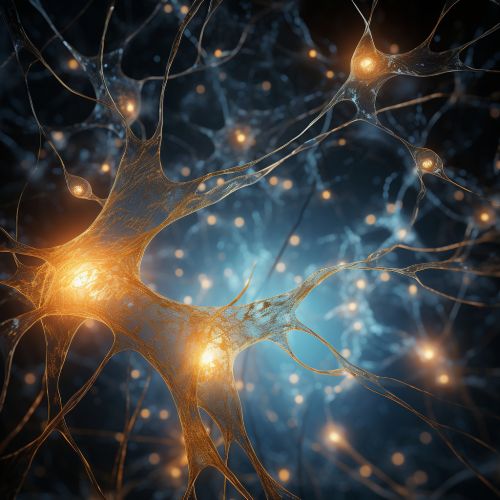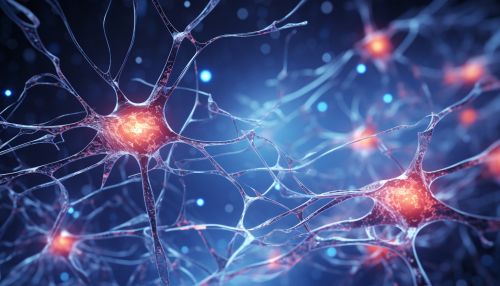The Role of Autophagy in Neurodegenerative Diseases
Introduction
Autophagy is a cellular process involved in the degradation and recycling of cellular components. It plays a vital role in maintaining cellular homeostasis and has been implicated in a variety of diseases, including neurodegenerative diseases. Neurodegenerative diseases are characterized by the progressive loss of structure or function of neurons, including death of neurons. Many neurodegenerative diseases including Parkinson's disease, Alzheimer's disease, and Huntington's disease, occur as a result of neurodegenerative processes.


Autophagy: An Overview
Autophagy, derived from the Greek words for "self-eating", is a cellular process that involves the degradation of cellular components through the lysosomal machinery. It serves as a critical adaptive response that allows cells to survive under conditions of stress, such as nutrient deprivation, hypoxia, and infection. Autophagy can be classified into three main types: macroautophagy, microautophagy, and chaperone-mediated autophagy, each with distinct mechanisms and functions.
Role of Autophagy in Cellular Function
Autophagy plays a crucial role in maintaining cellular homeostasis by removing damaged organelles, misfolded proteins, and invading pathogens. It also provides nutrients and energy during periods of starvation and stress. Dysregulation of autophagy can lead to various pathological conditions, including cancer, infection, aging, and neurodegenerative diseases.
Autophagy and Neurodegenerative Diseases
Neurodegenerative diseases are a heterogeneous group of disorders characterized by the progressive degeneration and loss of neurons. The common pathological feature of these diseases is the presence of protein aggregates in affected neurons, suggesting a failure in the protein degradation systems. Autophagy, as a major protein degradation pathway, has been implicated in the pathogenesis of several neurodegenerative diseases.
Alzheimer's Disease
Alzheimer's disease (AD) is the most common neurodegenerative disease and is characterized by the accumulation of extracellular amyloid-β plaques and intracellular neurofibrillary tangles. Several studies have shown that autophagy is involved in the degradation of amyloid-β and tau, the main components of plaques and tangles, respectively. Dysregulation of autophagy has been observed in AD, suggesting a potential role in its pathogenesis.
Parkinson's Disease
Parkinson's disease (PD) is the second most common neurodegenerative disease and is characterized by the loss of dopaminergic neurons in the substantia nigra and the presence of Lewy bodies, which are composed of aggregated α-synuclein. Autophagy has been shown to degrade α-synuclein, and impairment of autophagy can lead to the accumulation of α-synuclein, suggesting a role in the pathogenesis of PD.
Huntington's Disease
Huntington's disease (HD) is a genetic neurodegenerative disease caused by the expansion of CAG repeats in the huntingtin gene. The mutant huntingtin protein forms aggregates in neurons, leading to neuronal dysfunction and death. Autophagy has been shown to degrade mutant huntingtin, and dysregulation of autophagy has been observed in HD, suggesting a potential role in its pathogenesis.
Therapeutic Potential of Modulating Autophagy in Neurodegenerative Diseases
Given the role of autophagy in the degradation of disease-associated proteins, modulating autophagy has been proposed as a potential therapeutic strategy for neurodegenerative diseases. Several compounds that can enhance autophagy, such as rapamycin, resveratrol, and trehalose, have shown promise in preclinical models of neurodegenerative diseases. However, further research is needed to fully understand the potential benefits and risks of modulating autophagy in humans.
Conclusion
Autophagy plays a crucial role in maintaining cellular homeostasis and its dysregulation has been implicated in the pathogenesis of several neurodegenerative diseases. Modulating autophagy may represent a potential therapeutic strategy for these diseases. However, further research is needed to fully understand the role of autophagy in neurodegenerative diseases and to develop safe and effective strategies to modulate autophagy in humans.
